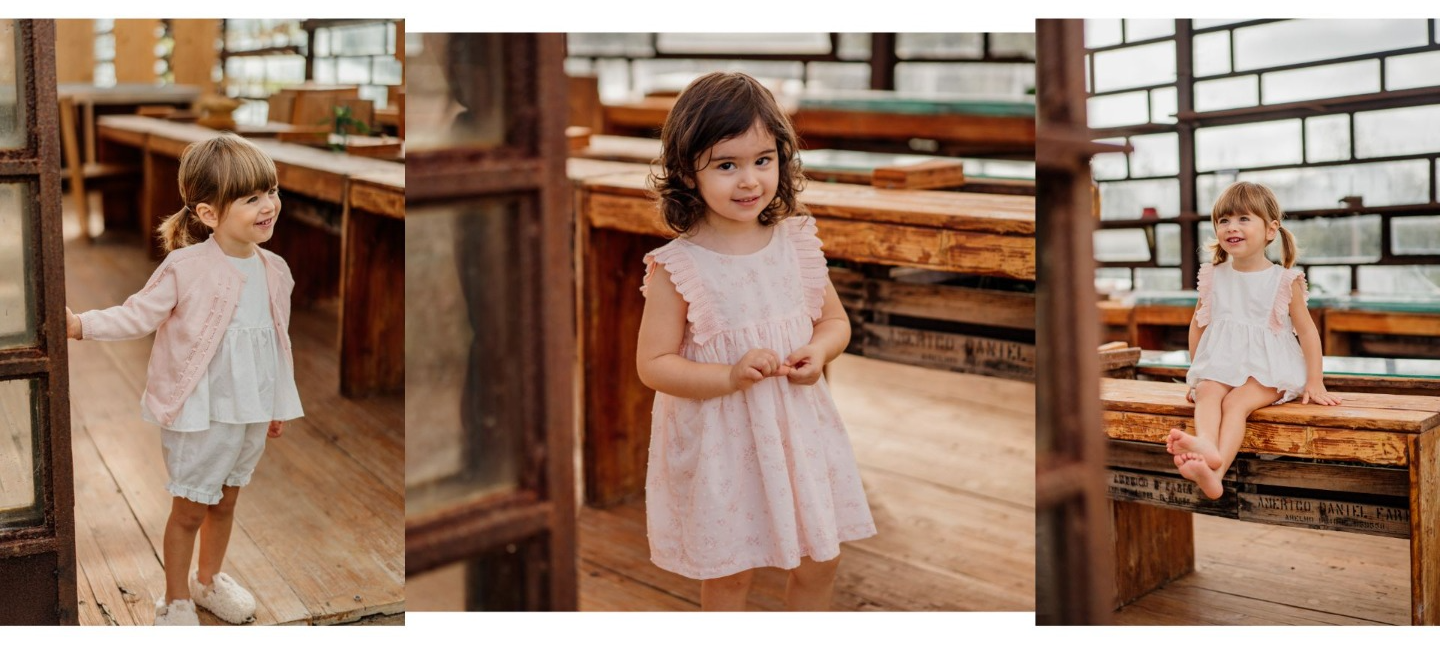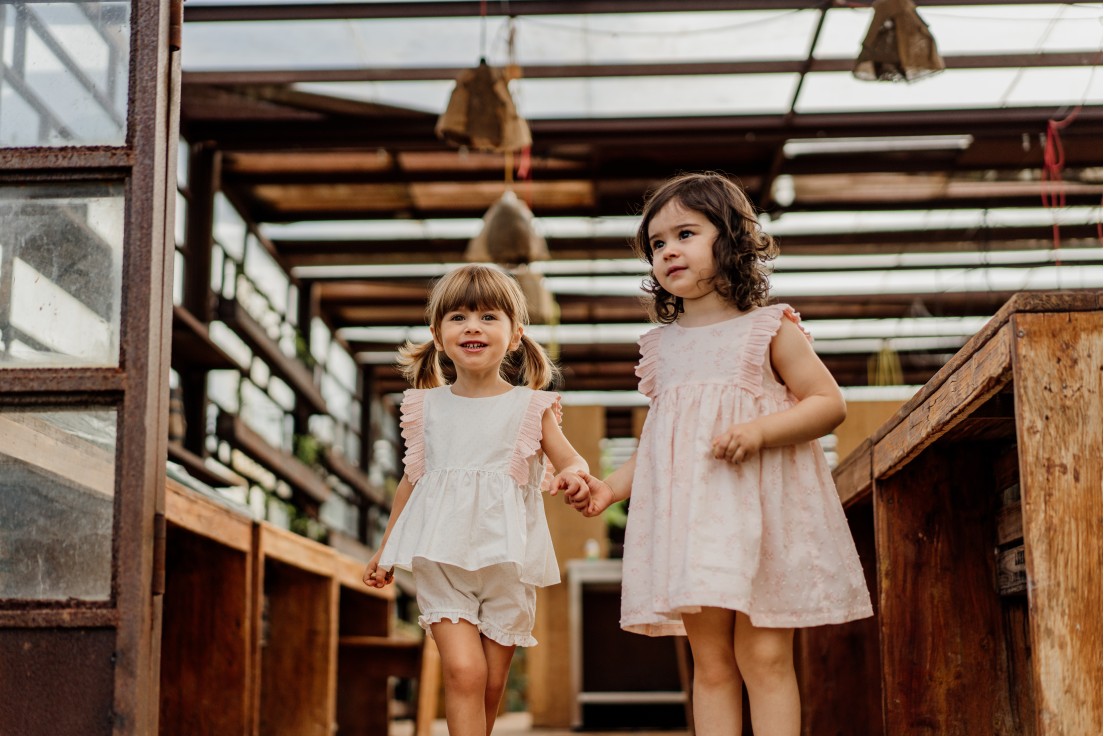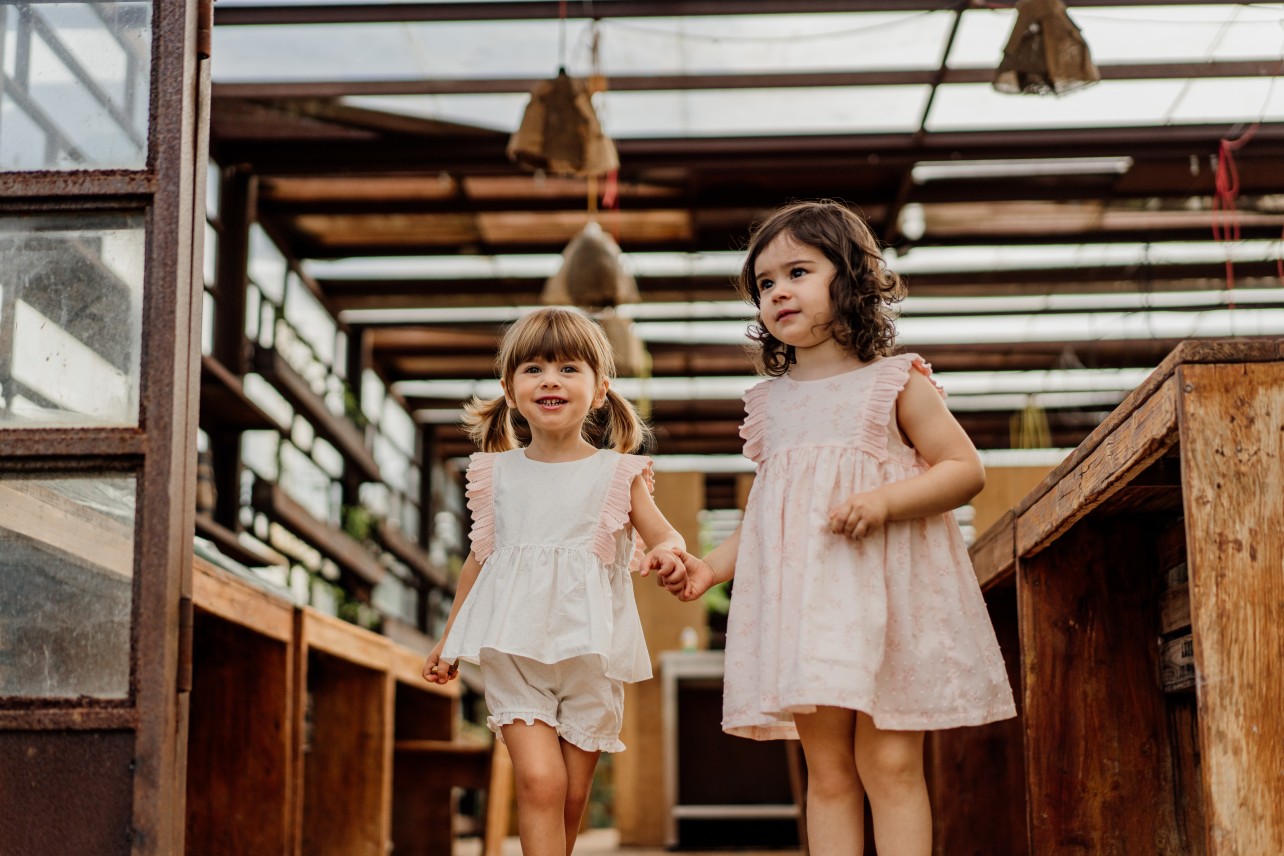From the moment our baby is born, parents are always prepared to realise and satisfy their little one's needs. Naturally, we want our baby to be well, to grow well and, above all, to feel comfortable.
The first few months of a baby's life are pure dependence, and parents are beginning their journey into motherhood and fatherhood. It's a period of insecurity and trying to figure out how to introduce a certain food, which product for your baby's skin or whether they will like a certain flavour. The same goes for the activities we start doing with our babies - seeing which game they like best or realising if they'll enjoy that walk. However, the parents will have a period in which the baby will be given whatever the parents think is best for him to eat and will go for a walk that the parents have so lovingly organised. Of course, always considering what is best, given that it is an activity to be done with a baby.
As babies grow and develop, they begin to have their own personalities, as they start to express themselves, crawl and are just a step away from walking. There is a sense of independence that the baby gains and that makes them a little more in charge of their own nose. We all like to give our opinion or respond to something that we like, or the opposite. Our little one is beginning his journey towards becoming an independent human being, capable of knowing what he wants and doesn't want.
Today on the blog, we want to touch on exactly this point. It's clear that as babies develop, they start to make different facial expressions and even say a big "no" to their parents. We're dealing with different stages of our little one's growth, which can sometimes be difficult to deal with, especially if it's the first time.
The question we want to ask you today is: how did you react when your son or daughter said no? We'd be amazed and wouldn't know what to do. How is it that our little one already answers "no" with such conviction? What's more, they throw tantrums about everything, especially when they get a "no" back. Is this a phase? Are we supposed to have this kind of crisis? Well, there are a lot of questions and we wanted to find out more.
What we have come to realise is that babies can actually be in a "no" phase. What would have been the period when we were blown away and amazed at what our babies had achieved on a daily basis, is now beginning to test our patience and authority. Normally, this phase begins when the baby has already shown some independence, can crawl and, in one way or another, can talk. Our little one will certainly find a way to express what they like and don't like. With so many "no's", the amazement begins to disappear and we start to have moments when our patience is stretched to the limit. That's understandable. We know it's not always easy, but we must remain calm.
According to the information we have collected and analysed, babies begin to name objects, specific situations and people, as well as saying "mum" and "dad". Between the ages of 18 and 24 months, they begin to discover new words, one of which is their parents' favourite - no. It seems that everything is an opportunity to say the word.

This attitude is adopted by our children, who are beginning to understand that there is something symbolic in language, in this case the concept of denial. Such developments are a big step for the baby.
It's a new word that the baby is learning and it will be a great opportunity to test our authority, see what our reaction is and see how far they can explore this situation. And we have to try to be firm and keep in mind that this is a phase and will pass.
One thing is certain, babies are in a phase of discovery - they take their first steps, say their first words - they become independent. This is where our little one's personality begins to emerge. As such, other expressions such as "I want" or "You don't" are part of this process and always come up when they throw a tantrum.
We realise that it's a necessary phase for our daughter or son, but it starts to be frustrating to have this feeling that nothing we can say will have any effect and there's no reaction whatsoever. For children, using the word "no" is a way of standing up for themselves and saying "I'm here and I have something to say". In this way, their personality begins to take shape and it will be an opportunity for them to be able to distance themselves from their parents.
It's natural for our little ones to change their behaviour. Mum and Dad's boundaries will be tested a lot and there may be situations in which our children can change their attitude towards people from one moment to the next.
But do all the "no's" our babies say really mean "no"? Well, we tried to understand the different meanings of "no". It's complex, it's difficult, but they do exist:
- The moment he is presented with a new food - a firm "no";
- The moment you put it in the trolley - a grumpy "no" because you're no longer playing your favourite game;
- The moment after a big tantrum - a "no" tired from all the energy they've spent on the tantrum;
- A moment when "no" means "yes" - a "no" with a shake of the head saying "yes";
- The habit of saying "no" - sometimes you can say "no" to something you would like to have or do.
At this stage, the baby will make the parents realise that they will only do something if he or she tells them to. However, we as parents must show them that we are the ones who make the decisions. This mindset can be difficult to put into practice, because in many situations we can't do it in the most calm way or our patience begins to fade.
With such situations of little patience or not knowing how we can show our son or daughter that we're in charge, we went looking for some ideas on how we can remain calm and firm in situations where the child can put them to the test.
The first tip we gave was to find a balance: we must be firm, but not too firm. If we are too permissive, we are allowing the child to make the rules. For example, if the child uses "no" a few times, we should remain firm and calm, trying not to make a big deal out of it. If we are too firm, we could be creating a situation in which the child feels humiliated, which could be a determining factor in their personality. We know it's not an easy task, but we must try to create a balance and avoid getting into arguments. An occasional acknowledgement and compromise can also happen.
The second tip for these situations is to keep the child distracted. Playing with their favourite toy, telling a story or even a distraction that comes from other situations - on a plane or train trip where other people interact with the child - can be contexts that parents can be eternally grateful for. In this way, potential tantrums followed by "no" can be successfully avoided.
The third tip is considered to be the main rule: make the child realise that it is the parents who decide and are in charge. Marking the limits created and set by the parents is essential for the child to understand that a "no" is a "no".
As our baby grows and develops, we realise that we have to take certain precautions. One of these is to make children realise that their parents decide. Allowing your baby to set the rules will come naturally to them, but it will be a real problem for the parents.
We realise that the main difficulty is creating a balance that allows limits to be set and agreed by the parents and complied with by the child. It's important for the child to realise these limits, but it doesn't mean that certain "no's" are occasionally accepted.
One aspect we want to emphasise is the word balance. In researching and analysing the information we've collected and shared with you here, it's essential not to forget this concept.
Our children are going through a "no" phase and parents will have to be firm and set rules. However, there must be a balance. In the end, we want both children and parents to be well and to get through this phase in the best possible way - you'll both learn from this situation. We know it won't be easy, but everything will be fine.
Today we're talking about this "no" phase and how difficult it can be for both children and parents. So we've brought you these tips to help you understand what a simple "no" from a child can mean.
What about you? Has your little one often used "no"? During this phase, what tips have you used that have been a great help? Share your experience with us. We want to know your opinion.






